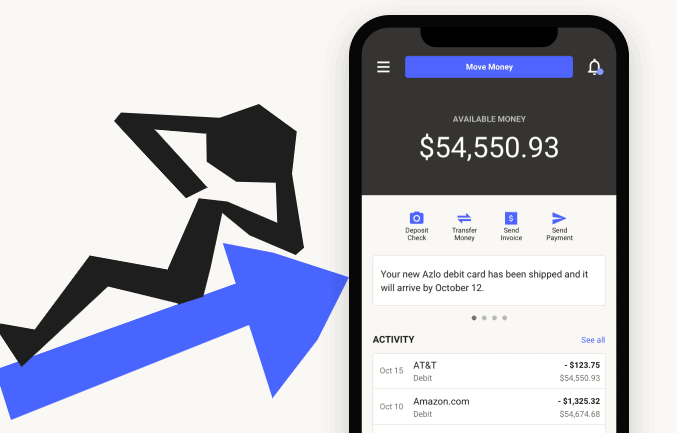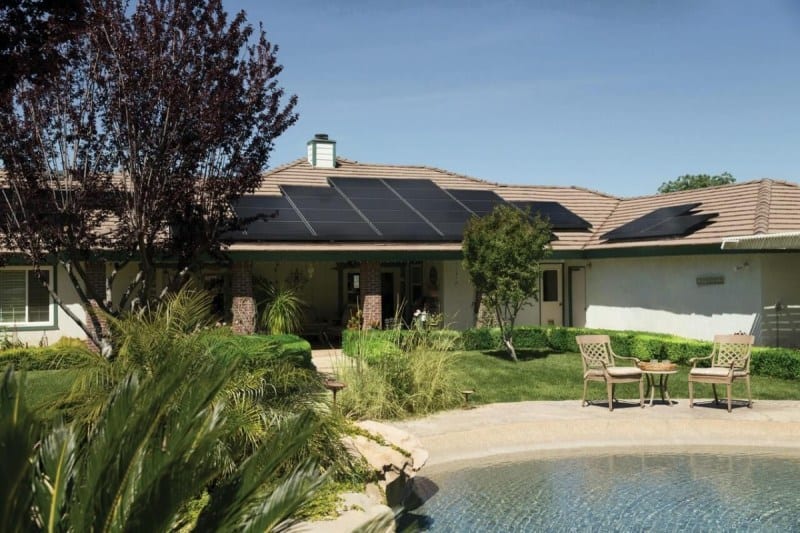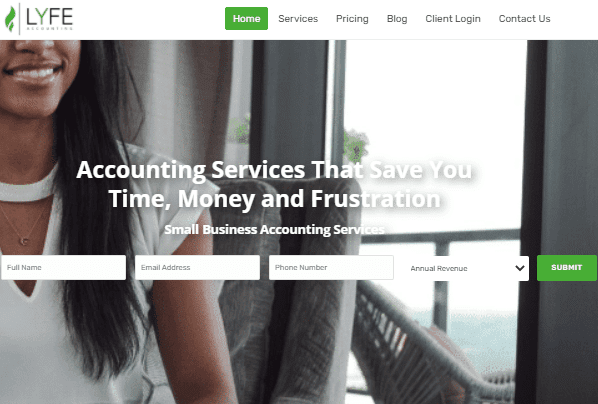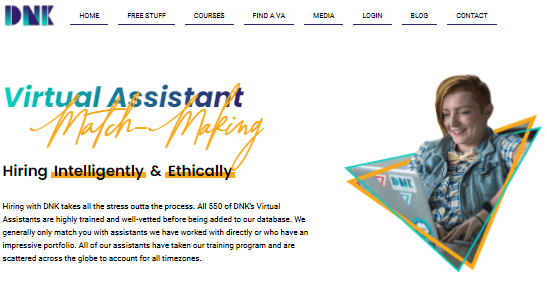People consider starting their own business due to a variety of reasons. Some want to pursue a passion; others desire financial independence or wish to support a social cause. Ditching the 9-to-5 grind and becoming your own boss has an unmatchable appeal.
No wonder there are 30.7 million small businesses in America. However, taking a business to success isn’t child’s play. You have to put in long hours, sweat, and spend a little money to survive past the initial years. Still, only 50% of small businesses are standing at the 5-year mark.
The good news is, 78% of those who survive report making a good profit. It’s important to understand that for most small businesses, the foundation should be laid in the very beginning, before the actual launch. So, you must understand how to start a business and follow all the necessary precautions.
Here are 12 steps you must follow to set a solid stage for your business endeavors. We’ll start from the very basics and give you concrete steps you can follow to start your business the right way.
- 1. Decide What Your Offering Is
- 2. Research Your Competitors
- 3. Create a Business Plan Using SMART Goals
- 4. Assess Your Finances
- 5. Choose a Legal Business Structure
- 6. Choose a Business Name and Register It
- 7. Choose an Insurance Policy
- 8. Set Up Location and Accounting
- 9. Build Your Team
- 10. Choose Vendors (If Needed)
- 11. Brand Your Business
- 12. Promote and Advertise
- 75 Business Ideas to Be Your Own Boss

1. Decide What Your Offering Is
If you’ve been dreaming of opening your business, you probably have several ideas in your mind. But, now it’s time to zero in on one!
Do you know why 42% of the startups fail? Because they have a lot of passion but no real sense of the market. They end up offering products and services that there isn’t a demand for.
So first things first, you have to figure out the market value of your idea. Think about your WHY… why do you want to offer this product or service? Is it just a passion or hobby, or does it solve a consumer problem or fill a market gap?
Think about your customers. Why would they want to buy from you or purchase your services? What are your business values, and how will you communicate and deliver these to your customers?
After all this brainstorming, if you don’t feel passionate about the idea anymore or you’re unable to think of why anyone would want to do business with you, it might be better to look for other ideas.

2. Research Your Competitors
Once you’ve selected an idea, it’s time to analyze your competitors. The goal isn’t to find out what they’re doing, but what they’re NOT doing that you can do or do better to differentiate yourself. Competitor research also gives you an idea of the competitive landscape within your niche. Note industry trends and study competitor campaign strategies to keep up or get ahead shortly after you start your business.
So think—who are your competitors? A simple Google search for your product/service idea is a great first step to find your industry’s big players.
As you examine their social media presence and their website, note what marketing messages they’re highlighting. Why are people buying from them; is it price, experience, or novel products?
Eventually, you will be able to isolate your direct competitors in order to dig deeper.
Use tools like Ahrefs to find out how much traffic they’re getting, what demographics they’re targeting, what keywords they’re targeting, and a lot more! Using this data, you can optimize your website for relevant keywords and target the same folks your competitors are.
Finally, set up Google Alerts to keep tabs on any significant changes in competitors’ market positioning over time.

3. Create a Business Plan Using S.M.A.R.T. Goals
Once your idea is finalized, it’s time to create a business plan that will serve as a roadmap for your business’ progress. To start a small business, you don’t need a super fancy, long, traditional business plan unless you’re trying to apply for funding.
A simple one-page business plan to give you clarity on your goals is enough. Goals convert an abstract idea into a concrete plan and will be a source of motivation when the going gets tough.
But, shockingly, 92% percent of people never reach their goals. That’s because they are unable to define their goals in a concrete way. Successful goal-setters create SMART goals that are Specific, Measurable, Attainable, Relevant, and Time-based.
- Specific: Instead of “increase sales,” which is pretty vague, write, “Sell five items.” Now that you’ve assigned a number to your goal, you can create easy steps to achieve it.
- Measurable: Creating a system for measuring your progress keeps you on track, motivates you, and gives you a target to measure your progress. It also helps you to scale your efforts and adjust your goals.
- Attainable: Your goals should be achievable in the time frame that you set for yourself and with the amount of resources you have. Often people fall into the trap of setting super, super high goals that are simply unattainable, which can lead to discouragement. Don’t do that!
- Relevant: This should go without saying. The goal you set should align with your overarching business plan and help to advance it.
- Time-Bound: SMART goals are always time-bound. For example, “sell five items in the first week.”

4. Assess Your Finances
Starting a business requires money, whether you tap into your savings or borrow it from others. Many startups fail because they run out of cash, so you need to be wise about your finances from the very beginning.
Overestimate your startup costs because breaking even and turning a profit takes time. And, if you’re leaving your job, you also need to factor in living costs for at least six months so that you’ll be set until your business starts making money.
Perform a Break-Even Analysis
Break-even analysis helps business owners determine when their company will start generating profit. It’s a simple formula.
- Fixed Costs / (Average Price – Variable Costs) = Break-Even Point
As you estimate your costs for this formula, you will get an idea of how your business must perform to stop losing money and earn a profit. This analysis gives you a ballpark on the revenue you must generate to make a profit.
With this estimate, you can understand the relation between your price and fixed and variable costs. Once you know that, you can find ways to decrease the costs to increase your profit margin even before you start your business.

Choose a Business Banking Option
Smaller community banks are best for small to medium businesses because they are more inclined to accommodate small businesses’ unique requirements. They are usually interested in developing a personal repertoire with the customer and may allow more wiggle room if you run into financial problems.
But first of all, you need to understand your business needs. Write down your banking needs, schedule meetings with various big and small banks, and discuss your requirements. Find out how they work with small businesses and what happens if your account falls below a certain point.
Another option is to take your business banking online. Banks like Azlo give you the freedom to access your business checking amount from home, another state, or halfway around the globe. They eliminate fees, offer secure money transfers, and come with a host of other tools that save you time while managing your finances. However, if your business requires hard cash, online banking may not be feasible for you.

5. Choose a Legal Business Structure
You need to choose your legal business structure before you start your business. It determines who’s responsible for all the debts and obligations and how you file your taxes. While there are many business structures to consider, most small businesses are only concerned with these:
- Sole Proprietorship: You are the sole owner of the business and have its full control. Legally, you and your business are a single entity, and your business assets and liabilities are not different from your personal finances. It also means that you’re personally responsible if something goes wrong during your business dealings. So, it’s only feasible for low-risk businesses.
- Partnership: You can partner up with other people to share business ownership and responsibility. Each partner’s share depends on the partnership type. Usually, one member has unlimited power over the business but also shares the most liability. Other members have limited liability and, thus, limited control over the company. Legally, your personal finances are still not separate from your business ones.
- Limited Liability Corporation (LLCs): An LLC can have other people or corporations as its members. Not only does it offer you tax advantages, but also you and your business are separate entities. An LLC’s benefit over other corporations is that you pay lower taxes but get business owner protections.
- Corporation: Corporations cost more than LLCs to form, but they offer the most protection against legal liabilities. They exist entirely independent of their owners. They make profits, bear losses, and be legally held responsible. A corporation also pays its own taxes, but the record-keeping and reporting must always be on point to stay out of trouble.
Corporations are a great business structure for business owners who plan to get venture capital or have a high-risk business. Most people who open a small business choose LLC, but it eventually boils down to your business plans and current needs.

6. Choose a Business Name and Register It
Did you know 72% of consumers make purchases based on brand names? A business name should be both catchy and reflect your brand’s personality. The right business name can differentiate you from your competitors, set your brand’s mood, and connect with your audience.
How to Choose a Business Name
Choose a name that describes your business but isn’t general or vague. For example, Antique Car Restoration tells you what the company is about, but will it stand out? On the other hand, Rust Bros is short, intriguing, and just rolls with the tongue.
Your business name should be easily pronounceable and simple enough that you don’t have to explain its meaning to your customers. Make sure it’s distinct and cannot be confused with your competitors. And, lastly, choose a name that can grow with you as you scale your business and add more products.
Ask your friends and family, brainstorm ideas, and get different perspectives. Ask your customers’ and colleagues’ opinions and get their help in picking your business’s right name.
As you come up with different names, make sure to check they’re not already registered. Also, check if your business name has a domain name and social media handles available.

Register With the Government and IRS
If you decide to register a corporation, you need to fill a document called an Article of Incorporation. It has your business name, business purpose, stock information, and other details about your company.
If you wish to register as a sole proprietor or a partnership, you will need to register a DBA, i.e., doing business as a name. At this point, you can also trademark your name. You can get detailed instructions from your local county clerk’s office.
Next, get the IRS checklist to find out whether your business requires an Employer Identification Number (EIN) or not. You can register online for free. As a sole proprietor, if you don’t have an employee yet, you don’t need an EIN, but most people get it anyway to save the hassle later. Having an EIN also helps you keep your personal and business taxes separate.
Obtain All Licenses and Permits
The state, city, or country-level licenses and permits depend on the industry, location, and business activities. Go through the lists of licenses and permits and write down the ones that apply to you.
Once you have a starting list, consult a local government agency. Since every state, county, and city has its regulations, you can explore the state website for more information.
Additionally, if your industry has a regulatory board or association, you will need a certification from them before applying for your state or county business license.

7. Choose an Insurance Policy
Insurance policy comes in handy if someone involves you in a lawsuit, damages your property, or there’s a theft. The most common insurance policies for a small business are as follows:
- General Liability Insurance (GL): GL covers bodily injury and property damage to you or any third-party during business activities.
- Business Owner Policy (BOP): If you operate out of a home office or a separate office space, BOP can cover your property and include general liability insurance.
- Workers’ Compensation: This insurance saves you from liability if a worker gets injured during service. It includes lost wages, medical bills, and any other expenses.
- Professional Liability Insurance (PLI): It protects your business if something goes wrong during your business activities.

8. Set Up Location and Accounting
The ideal location depends on the business type. For example, if you sell products or open a salon or a boutique, you’ll likely want a physical location.
Freelance developers, graphic design studios, and other online service providers don’t need to have physical offices. Many small businesses operate from their homes, and a large chunk of service providers and e-commerce stores don’t have a physical address at all.
Irrespective of your location, you need to set systems for the smooth running of your business. Having accounting software in place is one of the top priorities. You will need to manage your budget, set prices, record transactions, and file taxes. You can fix the processes yourself or hire an accountant to make things easier for you.

9. Build Your Team
Every SME needs a team, but whether you wish to hire employees or outsource to independent contractors requires serious consideration. It also affects how you pay your taxes. In any case, the sooner you start the process of building your team, the better.
Determine the roles you need to fill and carefully outline the job responsibilities for each position. Understand state and federal labor laws, establish a basic payroll system, and maintain records meticulously.
If you wish to hire contractors, consult an attorney to create a contractual agreement and understand your liabilities in case of outsourcing.

10. Choose Vendors (If Needed)
Whether you hire a team or work alone, you need the support of many third-party vendors to start your business and run it smoothly. These third-party vendors may be suppliers or service providers such as phone systems, HR support, or project management software like Basecamp or Asana.
No business can function effectively without these vendors; however, you should choose your B2B partners carefully. First of all, make sure they comply with federal and state laws, so you don’t have to face any problems moving forward.
Examine their security features and privacy policies because these vendors will have access to your sensitive business data. Lastly, it helps if the vendor you choose has some experience in your industry as well.

11. Brand Your Business
Branding means defining a personality for your business, its voice, values, and identity that make it instantly recognizable by consumers. If you’re marketing savvy, it shouldn’t cost you an arm and a leg to brand your business. Most of the branding methods are budget-friendly and require careful planning rather than money. If you want someone to put it together for you, it could get more costly.
- Choose Your Buyer Persona: You can effectively brand your business only when you know your customers. Buyer personas conceptualize your ideal customer’s characteristics, so you can understand how your business relates to them. You can make your buyer persona with HubSpot’s free MakeMyPersona tool.
- Pick Your Identity and Voice: Depending on your buyer persona, create a brand identity that speaks to your customers the way you want your business to communicate. Your emails, blogs and social posts should all reflect your brand voice. The colors you choose, the words you use, and your logo should reflect your brand’s mission.
- Strategize Social Media Presence: Create brand pages on all social media platforms and update them regularly. But with competitor analysis, you know which social media are popular among your target audience. That’s where you need to focus most of your energy and make sure you’re accessible to your audience.
- Start a Blog: If you create blogs to match your ideal personas’ interests, it will attract your ideal customers and improve brand engagement. Blogs also provide content for your social channels and help your brand appear in search results.
- Focus on Customer Service: If you’re able to provide excellent customer service to your buyers, word-of-mouth will strengthen your brand and save you a ton on marketing. Revisit the values you described for your business and make sure they are delivered to your customers to associate them with your brand.

12. Promote and Advertise
Marketing efforts are based on overarching business goals. You can combine different marketing channels and activities to deliver your message to the right audience. Use social media and email marketing, distribute marketing material, and advertise when appropriate/relevant.
Devise a marketing strategy and create SMART marketing goals and spend resources on promotion accordingly. Initially, you might want to do targeted outreach through social media or direct emails. Find out what works and add new promotional activities as you go.
Paid advertising such as PPC or Facebook advertising also works well for reaching a wider audience quickly. At the same time, plan for longterm organic promotion through SEO and content marketing.

75 Small Business Ideas to Be Your Own Boss
Now that you know how to start a business, it’s time to put your thinking cap on and turn your ideas into reality. But are you drawing a blank? If you’re having trouble deciding what you want to do, here are some small business ideas to get you started.
1. Pet Boarding
If you own pets or have experience with pet sitting, you can open a pet boarding business or a rented space. However, you will need some credentials such as being a current or previous pet owner or working experience at a pet shop, pet clinic, or pet hotel. You will also need pet boarding licenses and insurance for protection against any liabilities.
2. Home Dessert Shop
Home baking is a lucrative business that you can start from your kitchen. Get your kitchen approved by the health department to ensure it’s legal. Get your insurance and all other licenses and permits for a food preparation business. Create a Facebook and Instagram page of your beautiful confections and request friends and family for reviews and referrals.
3. Herbal Farm Stand
Fresh culinary herbs are in demand today, correlating with the mindset shift toward healthy living. You can grow your herbs in your backyard and sell them in local pop-up shops, outside at charity events, or in farmers’ markets. Depending on local laws, you’ll need licenses and permits for the food business.

4. Used Books Shop
You can open a used book shop in your garage with unwanted books from your collection. Your only expense is getting inventory and shipping charges if you sell online. For a physical store, you will need zoning permits and business licenses.
5. Upholstery Business
If you know how to sew upholstery, you can partner with a furniture maker or a repair business to get a steady flow of clients. Or else, you can offer repair services yourself and add to the upholstery cost. You will need business liability insurance and zoning permits to open your upholstery shop to open this business.
6. Tax Preparer
Tax preparation is tricky, so many people and companies are willing to spend top dollar to have someone watch for tax burdens and breaks for them. If you’re knowledgeable about tax preparation complexities, you will need IRS Preparer Tax Identification Number (PTIN), secure software, and insurance against liabilities to start your business.

7. Solar Energy Consultant
Are you knowledgeable in the solar energy field? If yes, then you’re sitting on a gold mine. You can open a green energy consultancy to inspect homes and offices and advise clients about their solar options. You can either recommend products and services or expand your business to offer installation as well.
8. Personal Concierge
From top executives to average joes, nowadays everyone is too busy to make room for other things in their life. From pet sitting to event planning and light housekeeping, people look to concierge firms to make things happen for them. A personal concierge is a 537.6 million industry with an expected growth rate of 5.3% from 2019 to 2025. The permits and licenses depend on the services you wish to offer.
9. Jewelry Maker
Jewelry can be made from many different materials such as metals, glass, plastic, feathers, beads, and wood. You can also sell jewelry craft supplies or make jewelry on order. Possibilities are endless, and you can start a store on Etsy and begin selling as soon as you want.

10. Home Organizer Company
Your company can provide consultancy or coaching to homeowners who can benefit from organizing their space. You can create self-help checklists to manage different rooms and create questionnaires to better understand how the family uses the space. Make sure you have proper insurance before you start this business.
11. Home and Office Energy Auditor
Many people are looking for ways to conserve energy and reduce their utility bills. You can offer a home energy audit service and expand your business by implementing and installing energy conservation suggestions. You will need energy auditor licensing and should get insurance for employee and business liability.
12. Flea Market Shop Owner
If you’ve got a knack for selling other people’s unwanted items, why not organize a flea market. You can set up a permanent indoor flea market if you have the budget or rent out space and sublet it to vendors. No matter which route you go, you need the required permits and licenses and meet other requirements and regulations.

13. Electronic Repair
Electronic repair is a lucrative business if you know your way with the computer hardware and other electronic equipment. You can repair small electronics at your shop, and the team can visit the client for more significant projects. Though you may not need any certifications to start this business, you should get insurance before repairing anyone’s products.
14. Editorial Services
There are various editorial services, and your business may provide all of them or specialize in only a few of them. You can offer editing and proofreading services to authors and work with them on their manuscripts to make them ready for publishing. Some editorial services also include ghostwriting the books to be published under someone else’s name. You might need a vendors’ license depending on your state laws.
15. Cleaning Service
Whether you specialize in cleaning houses, apartments, offices, or restaurants, cleaning service will always be in demand. It’s a lucrative business that doesn’t require office space or much advertising because most clients will be recurrent. However, you will need licenses, permits, and insurances to safeguard yourself and your employees in case of any damage, neglect, or other claims.

16. Boat Cleaning Service
Boats remain in the water for quite some time, so they need a complete overhaul once they are pulled out for repair or storage. If you’re skilled at boat detailing, you can partner with the marina in your area to get referrals. You don’t need any certification for this business.
17. Bicycle Repair
Before you dismiss bicycle repair as a not-in-demand business, think about all the road racers who train through snow and rain, plains, and mountains. They own fantastic bicycles but do they repair them too? Many do not! It can be a lucrative business if you market it right!
18. Financial Planner
If you’re a certified financial planner, you can start a consulting business to analyze the clients’ finances and devise a plan to manage their money. You can help them plan for retirement, vacations, kids’ college, etc.

19. Accounting Firm
Experienced accountants can open a firm to provide accounting services to other small and medium businesses. You can offer bookkeeping, tax calculation, and combined accounting experience depending upon the company’s needs. You will need to be a certified public accountant (CPA) or hire a team of CPAs to start this business.
20. Voiceover Artists
Voiceover artists are in huge demand with the popularity of podcasts and animations. You can join hands with other voiceover artists and start getting clients who require services for podcast intros/outros, audiobooks, and explainer videos. You don’t need a certification to start this business but should register your company and get vendor licensing according to state law.
21. Audio/Video Editing
Since more people listen to podcasts and watch videos nowadays, many brands are making video and audio content. However, most of them don’t have the skills or the time to invest in their production. You can build an epic editing team to provide these services. You wouldn’t need any certifications; you only need epic skills, creativity, and necessary licenses and permits.

22. Virtual Assist
Virtual assistants (VAs) do all sorts of odd jobs to help your business run efficiently. Many small businesses hire VAs because they don’t have enough workload to warrant a full-time employee. You can build a VAs team and handle your clients’ all and sundry needs or act as a matchmaker between businesses and VAs.
23. Social Media Marketer
If you know the ins and outs of social media marketing, you can open a consultancy and handle your clients’ social media marketing needs. Your agency can manage their accounts, write posts for them, communicate with their audience, and drive results for the clients.
24. Dog Training
Although you won’t require formal dog training, you still need to have enough experience with dogs to train and groom them if you wish to offer this service. Licensing and insurance are required, and so is the knowledge of state laws such as leashing laws and pet hygiene rules.

25. Home Staging
If you have an eye for interior design, the home staging business might be a hit for you. You can partner with real estate agencies in the area that need staging services for showings. You don’t require any degree or certification to start this business, just the flare for interior decoration, necessary permits, and insurances.
26. Coffee Shop Owner
Unlike other business ideas so far, you will need a little more planning and monetary investment for setting up the coffee shop. But if you’re hooked on caffeine, this business has excellent earning potential. You will need a food preparation permit, health checks for your shop, and other necessary permits for opening a brick and mortar shop.
27. Boutique Agency Owner
If you specialize in a skill, be it SEO, PR, social media, or content marketing, you can start your own agency. Boutique agencies provide customized solutions to meet the needs of various clients. Many small businesses prefer these agencies because they don’t have the resources to hire a full-fledged team.

28. Crafts Shop and Supplier
Kids, hobbyists, and crafting businesses all depend on craft supplies and tools to create their products. Depending on your target audience, you can open a craft supply store or become a wholesale supplier for invested crafters and crafting businesses. You can also sell your own crafts in your shop and even host a crafting masterclass to give your customers a complete experience.
29. Daycare Provider
Daycare demand is never going to diminish. Many people prefer daycares over nannies and nanny shares because of cost and security. But good daycares are hard to find, so they can become a hit in your neighborhood. However, you’re going to provide childcare, so protect yourself by getting zoning permits, insurances, and inspections right.
30. ECommerce
If you have resources for initial inventory or have your own homemade products, like cards, jewelry, pots, or anything at all, you can create an e-commerce store and sell them online. Create a store on Etsy or use Shopify to create your own shop. You don’t need a lot many permits for an online shop, but you must register your business and file for taxes accordingly.

31. Gym Owner
Are you a fitness freak, a yoga master, or a Krav Maga expert? You can open a gym or dojo to teach your skills and build a community around your passion. You will need standard federal and state licenses and permits and fulfill the legal requirements to run a gym.
32. Caterer
Can you prepare food for large events? If yes, then the catering business can be an exciting business endeavor with enormous room for progress. You can pick your projects, start with small events, and take up bigger ones when you feel more confident. You will need a permit from the local health authority and cater inspections whether you use your home kitchen or build a separate one.
33. Luxury Consignment Shop
Luxury items have a lot of profit margin, but they are not cheap to buy. But you don’t need to invest upfront. Choose the luxury items that match your vision, bring them to your shop, and share the profit with the original owner when you sell them. It’s a great way to start a shop without risking a lot of resources.

34. Food Truck Owner
Got a secret recipe or a stellar idea for a food experience but owning a restaurant isn’t feasible yet. How about launch your vision on a food truck and see it grow wings. Once you know your idea works and you have enough experience, you can look for ways to invest in a full-fledged restaurant.
35. Personal Trainer
If you’re a personal trainer, you need to get your game a notch higher and become a fitness guru. Build your brand, create personalized exercise and nutrition plans, and provide courses that people can buy and get trained. In-person training can be a premium service.
36. Consultant
Are you an authority on SEO, an ace salesman, or a hiring expert? If you have significant experience in any field and superior knowledge about any subject, businesses want your guidance. Open a consultancy, market your services, and charge top dollar for your years of experience and hard work.

37. Microbrewery Owner
If you’re skillful at creating your own beer blends, you can get people to pay for your unique combinations. You will need to obtain a few additional permits and a brewer’s bond in addition to buying microbrewery equipment.
38. Event Planner
Event planning is a vast domain, but you can specialize in weddings or kids’ events. However, planning events is not a child’s play, so make sure you’re experienced and have a skillful team to assist you—partner with caterers and wedding venues for referrals.
39. Clothing Boutique Owner
If you’re a fashion designer with a unique taste, you can start by opening a neighborhood boutique. Display your designs in the window, build an Instagram page, and market yourself through events and charity shows.

40. Graphic Designer
From blog posts to web design, brochures, and social media posts, people need web designers to create eye-catching images for their online and offline marketing needs. Experienced graphic designers are hard to find, so if you’re business savvy, this field has a lot of potential.
41. Pet Supply Store Owner
From fish tanks to dog food and toys, pet supply stores have everything you need to keep your pets happy and healthy. You can partner with a vet who can provide in-house consultation for pets.
42. Tour Guide
Do you know your city like the back of your palm? Can you guide the tourists to unique places with unexpected experiences, authentic food stalls, and exquisite attractions off the beaten path? If you can help visitors taste the true essence of your city or state, you can establish a successful tour guide business without requiring much investment.

43. Tutor
Do you have the skill to teach? Dance, Music, Chess… you can find students eager to learn and pay for these skills. You can market your tutoring service online or advertise at local community centers, schools, and colleges. Open a studio and get it equipped according to the local government laws and earn while following your passion.
44. Non-Profit Organizer
You can dedicate your life to a cause and become the owner of a non-profit. It allows you to work for your life mission. The criteria for non-profits are stringent, and you will need to create incorporation and file for tax-exempt status 501(c).
45. Bread and Breakfast Owner
It can be a pretty rewarding business, especially if you like to meet new people and entertaining guests. You can design your Break and Breakfast experience around the significant highlights of your area. Since a Bread and Breakfast is part home, part hotel, you have an exciting mix of licenses and permits to suit your business model.

46. Hairdresser or Makeup Artist
This is yet another business that requires skill to set up instead of any certifications. Though, you will need insurance and zoning permits. You can offer in-home service or open a hair and beauty salon in the neighborhood.
47. Massage Therapist
Massage therapy is a rapidly growing market. As a massage therapist, you need to contact your state’s massage therapy regulatory board to determine certification requirements. If you’re a licensed therapist in one state, you can get your permits and set up your business in that state only.
48. Moving Company Owner
Moving is a stressful task, and that’s why most people prefer to hire moving companies to safely and securely transport their belongings to their new home. You will require an initial investment to employ the workforce, truck, and moving equipment. The advance payment can reduce your initial investment.

49. Packing Service Facilitator
If the logistics involved in a moving service seems overwhelming, you can start small by offering packing services only. You will need to package all the household items for safe transport, make a list, and mark items carefully, so they are ready for pickup by the moving company.
50. Home Improvement Business
Many people renovate their homes to increase value before a sale, add extra space, or return the house to its former glory. Home improvement involves a lot of different jobs. You cannot be skilled at all of them. So, you need to decide whether you’re going to subcontract the rest or offer only the services you’re best at.
51. Real Estate Agent
If you have your broker’s license, you can open a real estate agency. The entire system is based on commissions, so you need very little in terms of the initial investment to start this business. However, it can take anywhere from 2-3 months before you can sell a house and make money.

52. Interior Designer
If you have an eye for interior decor, most states don’t require you to be a certified interior designer to start a business. Your aesthetic sense is your certificate, and your portfolio is your biggest marketing tool. Hire a team of designers and partner with suppliers to take your business to the next level.
53. Property Manager
If you’ve managed properties and mediated between renters and homeowners, you’re cut for the property management business. Many people have homes in other states where they don’t live and need someone for its upkeep. You can take several properties on your client roll, handle the minor fixes, and rent them out for the owners.
54. Home Inspector
You can start this business if you have proper home inspector certifications. Home inspectors need specific tools to test the safety of a property before a family moves in. So you must always have your insurance and permits ready because a family can sue you years after your inspection if any problems arise.

55. Carpet and Rug Cleaner
Carpets and rugs come in different materials, and each one has its own set of challenges and methods of cleaning. They can have tough stains such as dog and cat urine marks that need specialized treatments, and that’s why this business is in high demand all the time.
56. Car-Detailing Specialist
Car-detailing services have always been in trend, but nowadays, people prefer at-home detailing services. If you can manage to take your services to customers’ doorsteps, you can earn top dollar for it. Another plus is you don’t need a workshop for your business.
57. Personal Chef
Healthy eating is trendy, and so are many diets, but most people don’t have the time, energy, or knowledge to cook delicious meals that adhere to their diet preferences. You can provide home-cooked healthy food to local families and businesses. You can also specialize in one or two diet types such as vegan or Mediterranean, so you can cook in large batches and cater to all clients’ needs at once.

58. Meal Planner
Most people like to cook but lack the planning it requires to prepare nutritious meals every day. Meal planners create meal plans based on a family’s likes and dislike and provide the grocery list as well. They just grab the groceries, follow the recipes, and eat healthy meals three times a day/seven days a week. It’s an easy business to start, if you’re knowledgeable enough.
59. Travel Planner
If you can plan unique travel experiences for your clients, you can start a successful travel planner business. Contrary to a traditional travel agent, you create a whole experience for your client, complete with stunning locations, luxury hotels, delicious dining, and memorable experiences. You don’t need any money to start this business.
60. Photographer
Yes, selfies rule, but when people want to capture important milestones in their lives, like weddings, birthdays, and baby showers, they need professional photographers to capture their memorable moments. Else, you can cover large corporate events and product photography for big brands.

61. Videographer
If you have a knack for videography, why not turn it into a profitable business. You will need to buy the necessary equipment and get proper permits and insurance.
62. Antique Shop
Do you have an eye for antiquity? Whether you’ve collected or curated artifacts or have immense knowledge on the subject, you can turn your passion into a profitable business. Get your licensing, collect your artifacts, and start selling.
63. Landscaper
A landscaper isn’t a simple gardener. If you have a vision for outdoor decor with tree-trimming, lawn mowing, and strategic plants’ placement, you can build a successful landscaping business. Just get the equipment, hire workforce, and get busy sprucing up the neighborhood.

64. Self Storage Business Owner
You need storage space and then rent or buy the storage units where your clients will store their belongings. So, this business requires significant initial investment compared to some other small business ideas discussed so far. Get reliable insurance for your storage business, and get all the permits and licenses.
65. Resume Writer
Not everyone is a writer or a designer, so they need a professional to create their resume, cover letter, portfolio, and business profiles. You can lead a team of experienced writers to create impressive resumes.
66. Floral Shop Owner
The location of a floral shop is critical in its success. Floral shops near hospitals, cafes, and busy roads typically sell more. You can also collaborate with wedding and event planners as a floral supplier.

67. Electrical Contractor
You will need an electrical contractor license, and insurance is a must too. Collaborate with home inspectors, home improvement businesses, and real estate agents for referrals. Every house, office, and factory needs electrical services, so it’s a business that remains in demand.
68. Life Coach
Many people reach a point in their lives when they need guidance in their life and career. They need a mentor to prepare them for critical decisions in life. If you think you can help people discover their true calling, you can offer hands-on coaching classes and intense training people need in their lives.
69. Bridal Consultant
If wedding planning seems too overwhelming, you can always start small and work as a bridal consultant. Your services will be limited to matters concerned with the bride and groom’s appearance and how they want to present themselves. There’s a lot of room for expansion in this business as your confidence increases, and you’re ready to take up more of the chores.

70. Sewing and Alteration Specialist
If you love sewing, you can start this small business without needing any certification. All you need is expert skills in repair and alteration. As your clientele increases, you can also include dressmaking in your services list.
71. Freelance Developer Business
As a developer, your business can build apps, software, and websites for clients and provide ongoing technical support. Web and software development has always been in high demand. Although most of your work is online, you need to get the required licenses and permits to form a company and hire employees.
72. Pest Control
Are you an exterminator and have experience working in a pest control company? You will require a pest control business license registered with your county agricultural commissioner’s office. Your business liability insurance should also include chemical liability insurance.

73. Woodworker
Do you carve beautiful wood decorations or specialize in furniture making? You can open a workshop or an e-commerce store. Once you feel confident, partner with upholstery businesses to make upholstered furniture, or you can start accepting custom orders for premium prices.
74. Drone Services
Drones are quite popular nowadays, and you can start a drone business in an unlimited number of ways. Do you think you can repair drones? Or are you better at drone photography and videography? If yes, you can offer drone services for weddings, parties, sporting events, and inspections and security services.
75. Dry Cleaning Business
If you have a budget for investment, dry cleaning is a pretty profitable business. You will need industry-specific licensing and may require registration with the Environment Protection Department.
Selecting a small business idea depends on your personal preferences, abilities, and resources. You can brainstorm ideas with your family and friends to get their input and clear your headspace. We hope that you know exactly how to start a business with this detailed guide once you’ve finalized an idea. When you need help getting the word out, feel free to contact Wild Idea Marketing.
Karli is content marketing consultant behind Wild Idea, a content marketing and SEO collective focused on driving big results. With over 12 years in the marketing industry, she’s worked with brands large and small across many industries to grow organic traffic and reach new audiences. She writes on everything from marketing, social, and SEO to travel and real estate. On the weekends, she loves to explore new places, enjoy the outdoors and have a glass or two of vino!







One thought on “How to Start a Small Business: 12 Steps + 75 Small Business Ideas”
Comments are closed.